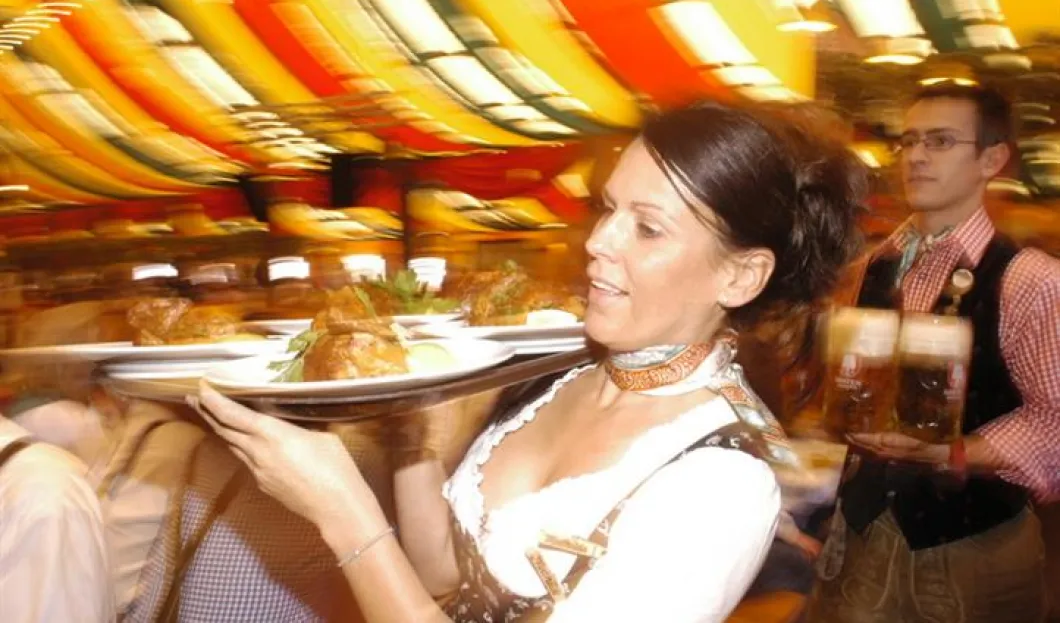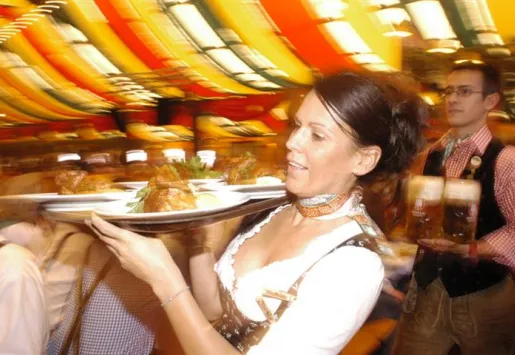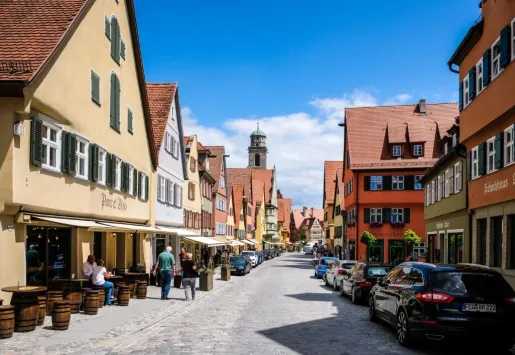
Compared to last year, this year saw fewer people attend Munich's Oktoberfest. Those in attendance ate more, but drunk less beer.
Dating back some 205 years, the Oktoberfest has become a major aspect of German culture. During the two-week festival thousands of people flock the grounds, also referred to as the "Wiesn", for a wild beer drinking celebration coupled with tasting of the traditional German food.
The attendance at the Oktoberfest has always been high. However, this year saw a slip in the number of revelers who came to the party that is the largest beer drinking festival in the world. Compared to last year's 6.3 million people who attended the festival, this year saw that number dwindle by 400,000 people as the festival attracted 5.9 million visitors.
Despite the slip in the number of beer lovers, the appetite for traditional food among those in attendance seemed to have gone a notch higher. In 2014, the 6.3 million visitors ate 112 oxen and 48 calves. This year, the 5.9 million visitors ate more – 114 oxen and 50 calves. Therefore, according to Munich Mayor Josef Schmid, this year's Oktoberfest was still a high level one.
The amount of beer that was consumed was slightly lower this year. The visitors consumed a total of 7.3 million liters compared to last year's 7.7 million liters. A liter of beer was retailing at EUR 10.22 ($11.46).
The reduction in the number of people in attendance was attributed to several factors. The major one was the government's decision from September 13th to impose border controls on the influx of refugees into Germany. Another reason was the suspension of major rail services to-and-from Hungary and Austria by Deutsche Bahn, Germany's rail operator. The weather, which was mainly cool and rainy was also blamed for the reduction in visitor numbers.
Photo: Kubinska & Hofmann




















Also strong traditional events and ancients cultural uses and attitudes need to learn to change.